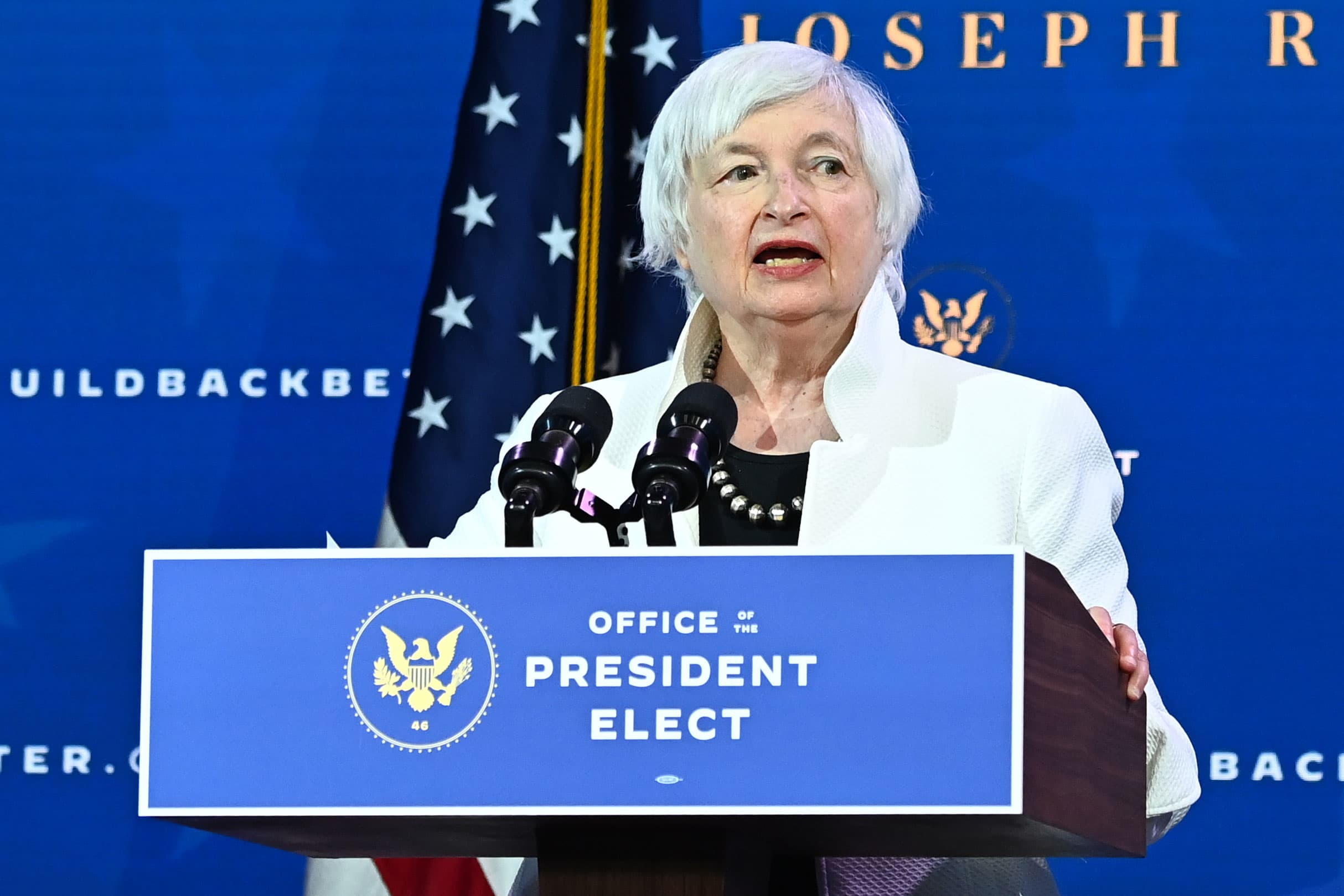Treasury secretary nominee Janet Yellen speaks after US President-elect Joe Biden announced his economic team at The Queen Theater in Wilmington, Delaware, on December 1, 2020.
Chandan Khanna | AFP | Getty Images
The Internal Revenue Service on Friday began processing stimulus checks, which have already started to hit Americans’ bank accounts and should continue to arrive throughout the weekend.
Officials from the Treasury Department and the IRS told reporters Friday afternoon that most Americans do not need to take any additional action to receive their payments and most will be delivered via direct deposit.
“Even though the tax season is in full swing, IRS employees again worked around the clock to quickly deliver help to millions of Americans struggling to cope with this historic pandemic,” IRS Commissioner Chuck Rettig said in a press release.
IRS officials said that full $1,400 payments are slated to go to individuals with adjusted gross incomes of up to $75,000, heads of households that make up to $112,500 and married couples filing jointly with annual income up to $150,000.
Like prior stimulus checks, the payments are reduced for those with income above those thresholds. This time, however, the Senate lowered the income levels at which the payments get phased to zero. Unlike the prior rounds of checks, families will get a payment for all their dependents claimed on a tax return, not just their qualifying children under 17.
The third round of payments will be based on the taxpayer’s latest processed tax return from either 2020 or 2019. Americans can check the status of their third payment by using the Get My Payment tool starting on Monday.
The stimulus checks, officially known as economic impact payments, are a major part of the $1.9 trillion Covid relief package Biden signed on Thursday. The landmark legislation directs the Treasury to send direct payments of up to $1,400 to most Americans.
The bill also extends a per-week $300 jobless insurance boost until Sept. 6 and augment the child tax credit for a year. It will also pump nearly $20 billion into the Covid-19 vaccination effort, $25 billion into rental and utility assistance, and $350 billion into state, local and tribal relief.
As one of Biden’s top economic advisors, Treasury Secretary Janet Yellen championed the American Rescue Plan as necessary to return U.S. commerce to full strength. She repeatedly warned that the economy — and specifically the labor force — could take far longer to recover without another big-ticket relief package.
“We think it’s very important to have a big package [that] addresses the pain this has caused – 15 million Americans behind on their rent, 24 million adults and 12 million children who don’t have enough to eat, small businesses failing,” Yellen told CNBC in February, prior to the bill’s passage.
“I think these checks really will provide relief and they’ll help jump-start our economy, giving people money to spend when we can get out again and go back to our former lives,” she added.

